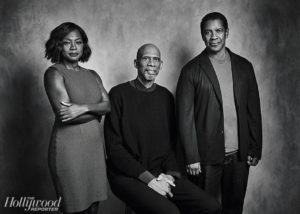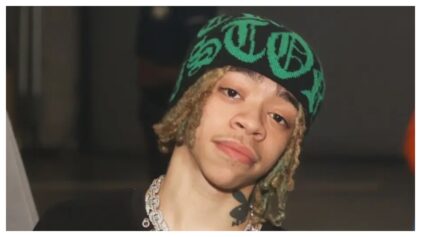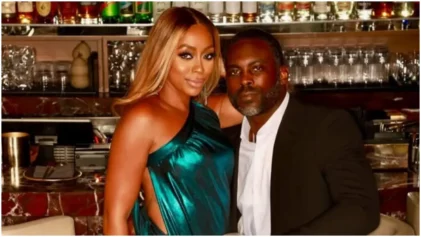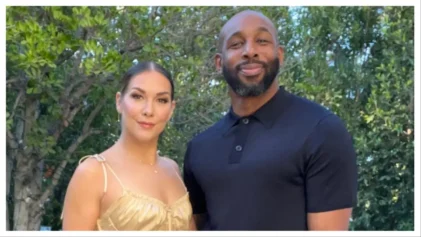
Kareem Abdul-Jabbar with Denzel Washington and Viola Davis (David Needleman/The Hollywood Reporter)
“Fences” stars Denzel Washington and Viola Davis touched on the film adaptation of August Wilson’s book, as well as personal responsibility and race — a theme that runs throughout the movie — when they sat down with retired NBA center Kareem Abdul-Jabbar for the Dec. 9 edition of The Hollywood Reporter.
Washington and Davis each reprise their 2010 Tony Award-winning roles as Troy and Rose Maxson, a married Black couple living in 1950s Pittsburgh. Troy is seen grappling with his failed baseball career, something he blames on racism. Because of that, when his son Cory attempts to pursue football, his father puts a stop to it.
“The baggage that Troy brings affects everyone he touches, and you can see it in Rose’s face,” said Washington, who also is the movie’s director. “She’s heard it and seen it before. No, he can’t hit 10 homeruns or whatever he says. But he has to believe it. He needs to believe it. That’s all he’s got to hold onto.”
Even outside of the film, race was a factor. Abdul-Jabbar noted that Wilson refused to allow “Fences” to be adapted into a movie unless it was helmed by a Black director. Washington agreed but added that culture was equally important. He noted that Jewish filmmaker Steven Spielberg could’ve directed “Goodfellas” and Martin Scorsese, who is of Italian descent, could’ve helmed “Schindler’s List” but it’s likely certain intangibles would’ve been lost in translation.
“It’s as much to do with the difference in culture as it is with race,” Washington said. “We know what hair smells like when a hot comb hits it. That’s a cultural thing. We know what that smells like on Sunday mornings, usually church-related or something. In my house, it was getting ready for church and your sister was getting her hair fried.”
When Abdul-Jabbar asked the co-stars about the glimpses white audiences will get to see of Black life and culture in the film, Davis said she hoped they would notice the adversity Black people face.
“I think sometimes what people miss about Black people is that we’re complicated,” she said. “That we are indeed messy, that we do our best with what we’ve been given. We come into the world exactly like you. It’s just that there are circumstances in the culture that are dictated and put on our lives that we have to fight against.”
Regardless of the Oscar buzz surrounding “Fences” and other Black-led dramas like it, Abdul-Jabbar noted that Hollywood is continually surprised that a Black film can become profitable. But Washington believes the shock comes from white executives wondering why their movies fail.
“The surprise now is, ‘Why wasn’t it us?'” he said. “‘Why didn’t we have one of those? I don’t want to hear about the social impact. Yeah, that’s great for you, but now I’m $25 [million] in the hole.’ It’s a business.”
Still, co-star Davis placed the responsibility on Black filmmakers.
“You have to put it out there for the world to consume or not consume and wait to be beaten down,” she said. “I’d like to think this is our time as African-Americans. That we’re not waiting.”


